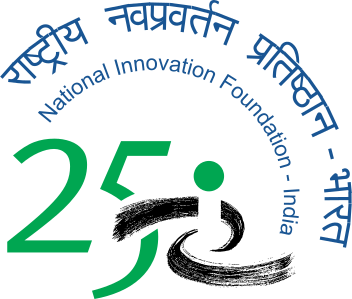News
.jpg)
Chosen from more than 400 candidates, the 10 grass-roots innovators have no qualifications or specialisation and no lofty college degrees either. From medicine to music and power to pottery, these ‘scholars in residence’ have invented unique devices to benefit everyday life in a variety of ways.
“This was the very criteria for selection. They are some of the best minds in the country who have devised novel ideas in health, rural livelihood, power, music and agriculture,” said Dr Anil Gupta, Executive Vice Chair, National Innovation Foundation (NIF), who was in the selection committee.
“We aim at exposing the grassroots innovators to ministries, government officials and resource persons in industry who would be interested in collaborating with them to take their projects ahead,” he added.
The youngest in the group is 15 and the oldest 65. While Aakash Manoj, a student from Tamil Nadu, has come up with a methodology to detect silent heart attacks, Surjeet Singh, a farmer for four decades in Haryana, has created a new variety of rice named after him -- Surjeet Basmati-1.
The two women in the group are 18-year-old Shalini Kumari from Bihar, who came up with the idea of an adjustable walker when she was just 12 after she saw her grandfather facing problems, and 43-year-old Santosh Pachar, a shy farmer from Rajasthan, who has grown a superior quality of carrots.
Then there’s 40-year-old Subhash Ola from Rajasthan, who built a steam turbine that could light up a six-watt bulb when he was in Class 8.
He had to drop out in high school to help his father with farming, but continued with his passion. Observing that the process to extract mawa from 100 litres of milk required a whopping 100 kilos of wood and 4,000 litres of water, he developed a steam recycle boiler.
There was no looking back after that and Ola went on to set up a company to manufacture energy efficient boilers for all industries. “We have installed close to 300 boiler plants in north India. In one of the plants, the consumption of coal has gone down from 50 tonnes a day to 20 tonnes,” he said proudly.
Also focused on energy needs, Ajay Kumar Sharma, (26, from Varanasi has designed biogas compressor and has modified gas cylinders so that they can be used as portable bio-gas cylinders.
Giving them company is Girish Badragond, 37, from Korwar village in Karnataka who has studied only till Class 10 but has devised a borewell scanner to gauge groundwater until a depth of 1,000 feet. “I developed a habit of tinkering with electronic items when I was in Class 3. I learnt how to repair a television soon. What drives me is the curiosity to solve a problem,” said Badragond.
Ahmedabad businessman Paresh Panchal, 48, is also determined to improve rural livelihoods. He says he was moved to act when he visited Ogda village, 70 km from Udaipur, and met a group of 50 people who had blisters on their hands from splitting bamboo to make incense sticks. “Each person made barely Rs 50 a day,” he said. And so, he designed an incense making machine, which is being used by close to 2,500 bamboo artisans, each of whom makes Rs 300 a day due to increased productivity.
Another Gujarat-based innovator, Mansukh Prajapati, 52, is following his ancestral lineage of making earthen pots. But with a certain panache and twist. He has developed a 50-litre clay refrigerator, Mitticool, which can preserve milk and vegetables for two-three days without electricity.
“I toiled at a factory for five years to make my living, after which the proprietor came to my home to hand me over Rs50,000 as an initial investment to start my venture… Till date, we have sold 3,500 refrigerators, 50,000 clay tawas and 30,000 clay cookers,” he said.
Also meet Moa Subong, in his fifties, from Nagaland who made a flute-like instrument, BamHum, to aid his musician wife. “The instrument was picked up by leading bands like Parikrama and musician Papon. We have sold 5,000 units of this in the last 10 years,” he said.
The scholars, who end their programme on March 18, say they have had a packed, memorable fortnight.
As Ola put it, “This programme has given me a much needed break to reflect and network with people. It is a fantastic opportunity for all of us.”






